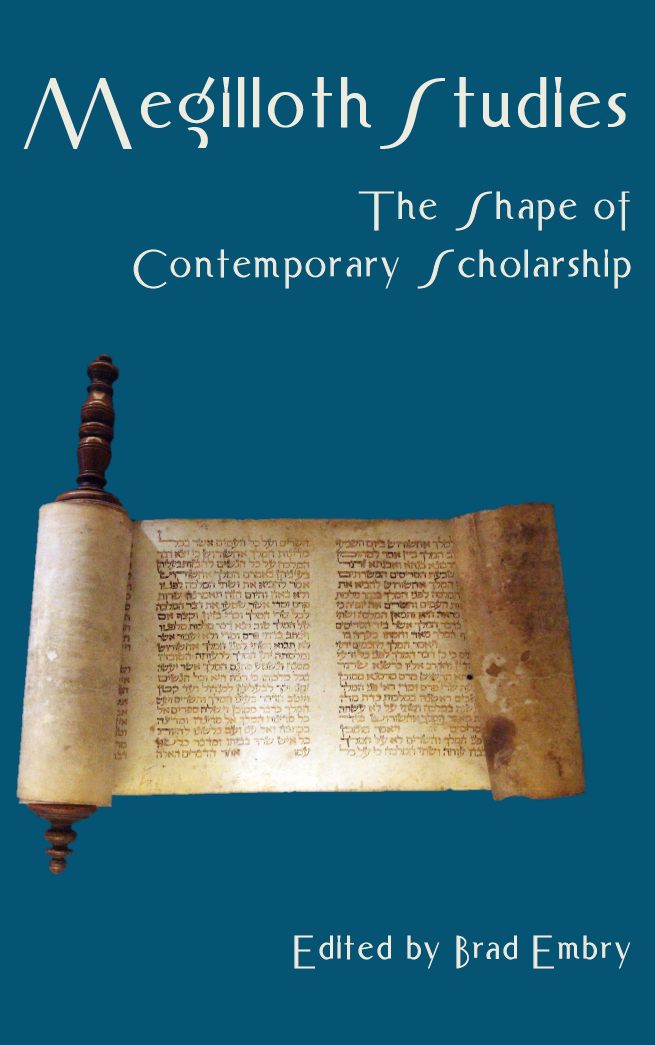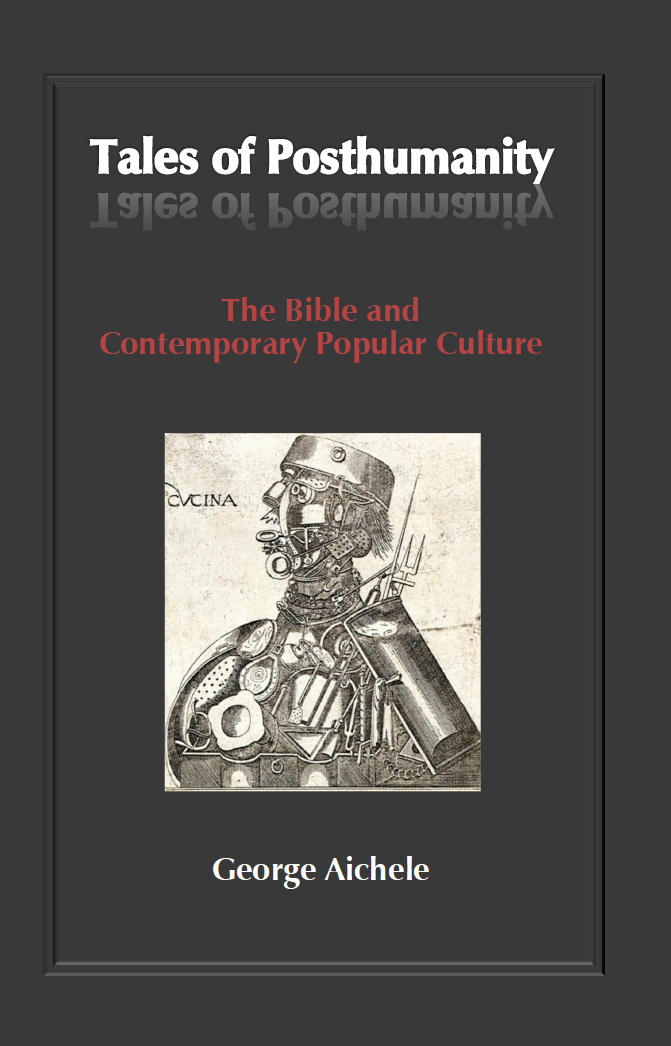Megilloth Studies: The Shape of Contemporary Scholarship
Published: Feb 2016
£60.00
This volume brings together two years of papers read to the Megilloth Consultation Group at the Annual Meetings of the Society of Biblical Literature; it represents some of the most recent work being done by a group of international scholars on the collection of Hebrew Bible books known as the Megilloth.
Although the individual books of the Megilloth have received ample academic attention in contemporary scholarship, relatively little has been done to situate them under this broader rubric. To this end, the present volume addresses a range of issues associated with studying the five scrolls, such as the internal relationship between the books themselves, intertextual connections between the five scrolls and other portions of the Hebrew Bible, gender and ethnic concerns in the five scrolls, and the theological commitments and contours of the collection. Several of the papers and the volume itself also intentionally wrestle with the viability of the category 'Megilloth' as a meaningful term in academic studies of these writings.
In addition to papers on the Megilloth in general (Galvin, Stone, Fullerton Strollo), there are studies on Esther (Davis, Greenspoon, Avnery, Peters, three of them in relation to Ruth), Lamentations (Gruber and Yona, Flanders) and Qoheleth (Weeks).
Megilloth Studies: The Shape of Contemporary Scholarship
£60.00
This volume brings together two years of papers read to the Megilloth Consultation Group at the Annual Meetings of the Society of Biblical Literature; it represents some of the most recent work being done by a group of international scholars on the collection of Hebrew Bible books known as the Megilloth.
Although the individual books of the Megilloth have received ample academic attention in contemporary scholarship, relatively little has been done to situate them under this broader rubric. To this end, the present volume addresses a range of issues associated with studying the five scrolls, such as the internal relationship between the books themselves, intertextual connections between the five scrolls and other portions of the Hebrew Bible, gender and ethnic concerns in the five scrolls, and the theological commitments and contours of the collection. Several of the papers and the volume itself also intentionally wrestle with the viability of the category 'Megilloth' as a meaningful term in academic studies of these writings.
In addition to papers on the Megilloth in general (Galvin, Stone, Fullerton Strollo), there are studies on Esther (Davis, Greenspoon, Avnery, Peters, three of them in relation to Ruth), Lamentations (Gruber and Yona, Flanders) and Qoheleth (Weeks).
Tales of Posthumanity: The Bible and Contemporary Popular Culture
Published: Oct 2014
£50.00
Images and concepts of the ‘posthuman’ go back at least as far as the famous ‘madman parable’ in F. Nietzsche’s The Gay Science, and their ‘roots’ go back much further still. In turn, the image or theme of the posthuman has played an increasingly important role in recent literature, film, and television, where the notion of humanity as a ‘larval being’ (G. Deleuze) that transforms itself or is being transformed into something else, for better or worse, has become increasingly common.
This book explores these concepts in relation to biblical texts, particularly texts from the gospel of Mark but also from the books of Daniel, Jonah and Qoheleth (Ecclesiastes), and the Acts of the Apostles. At the same time, texts from recent popular culture are examined, including novels by J. Morrow, C. Miéville and G. Ryman, the movies Local Hero and Lars and the Real Girl, and the Heroes TV series among others.
Through a kind of inverted causality, recent texts in various media such as these transform earlier and otherwise unrelated ones, including biblical texts, into precursors, giving them new, postmodern meanings, just as the older texts once signified in still other ways before the advent of the familiar modern world. As a result, biblical texts signify in remarkably different ways in relation to the posthuman. Posthuman beings appear in both biblical and non-biblical texts, and the biblical phrase ‘sons of men’ (in both plural and singular versions) plays a crucial role, where it too takes on meanings that range far beyond the conventional or traditional ones.
Tales of Posthumanity: The Bible and Contemporary Popular Culture
£50.00
Images and concepts of the ‘posthuman’ go back at least as far as the famous ‘madman parable’ in F. Nietzsche’s The Gay Science, and their ‘roots’ go back much further still. In turn, the image or theme of the posthuman has played an increasingly important role in recent literature, film, and television, where the notion of humanity as a ‘larval being’ (G. Deleuze) that transforms itself or is being transformed into something else, for better or worse, has become increasingly common.
This book explores these concepts in relation to biblical texts, particularly texts from the gospel of Mark but also from the books of Daniel, Jonah and Qoheleth (Ecclesiastes), and the Acts of the Apostles. At the same time, texts from recent popular culture are examined, including novels by J. Morrow, C. Miéville and G. Ryman, the movies Local Hero and Lars and the Real Girl, and the Heroes TV series among others.
Through a kind of inverted causality, recent texts in various media such as these transform earlier and otherwise unrelated ones, including biblical texts, into precursors, giving them new, postmodern meanings, just as the older texts once signified in still other ways before the advent of the familiar modern world. As a result, biblical texts signify in remarkably different ways in relation to the posthuman. Posthuman beings appear in both biblical and non-biblical texts, and the biblical phrase ‘sons of men’ (in both plural and singular versions) plays a crucial role, where it too takes on meanings that range far beyond the conventional or traditional ones.
With Eyes of Flesh: The Bible, Gender and Human Rights
Published: Aug 2008
Price range: £19.50 through £50.00
Carole Fontaine, well known among biblical scholars for her feminist studies in the biblical wisdom traditions and the ancient Near East, is also a human rights and interfaith activist working on issues of violence against Muslim women in the Middle East and Southern Asia and a board member of many agencies such as the International Network for the Rights of Female Victims of Violence in Pakistan, and the Women's Forum against Fundamentalism in Iran.
In this collection of her essays, mostly previously unpublished, she brings together these two concerns, distilling from the scriptures of Judaism, Christianity and Islam valuable insights into current questions of human rights. Unlike many writers, Fontaine recognizes the critical role of gender in the fundamental concept of the 'Other', so determinative for our view of humanity.
In our days, Fontaine argues, human rights issues have taken on a new dimension in political discourse about war, peace and terror, where often an appeal is made to religious and scriptural justifications for the violation or preservation of rights. Fontaine urges attention to the priority of the sufferer in adjudicating meaning, and turns to the 'little texts' of daily ethics rather than grand theological abstractions in order to place 'scriptures' in meaningful conversation with the concrete realities of our world.
This is the second volume of the Amsterdam Studies in the Bible and Religion (ed. Athalya Brenner), a sub-series of the Bible in the Moden World.
With Eyes of Flesh: The Bible, Gender and Human Rights
Price range: £19.50 through £50.00
Carole Fontaine, well known among biblical scholars for her feminist studies in the biblical wisdom traditions and the ancient Near East, is also a human rights and interfaith activist working on issues of violence against Muslim women in the Middle East and Southern Asia and a board member of many agencies such as the International Network for the Rights of Female Victims of Violence in Pakistan, and the Women's Forum against Fundamentalism in Iran.
In this collection of her essays, mostly previously unpublished, she brings together these two concerns, distilling from the scriptures of Judaism, Christianity and Islam valuable insights into current questions of human rights. Unlike many writers, Fontaine recognizes the critical role of gender in the fundamental concept of the 'Other', so determinative for our view of humanity.
In our days, Fontaine argues, human rights issues have taken on a new dimension in political discourse about war, peace and terror, where often an appeal is made to religious and scriptural justifications for the violation or preservation of rights. Fontaine urges attention to the priority of the sufferer in adjudicating meaning, and turns to the 'little texts' of daily ethics rather than grand theological abstractions in order to place 'scriptures' in meaningful conversation with the concrete realities of our world.
This is the second volume of the Amsterdam Studies in the Bible and Religion (ed. Athalya Brenner), a sub-series of the Bible in the Moden World.




Qoheleth, Second Edition
Qoheleth, Second Edition